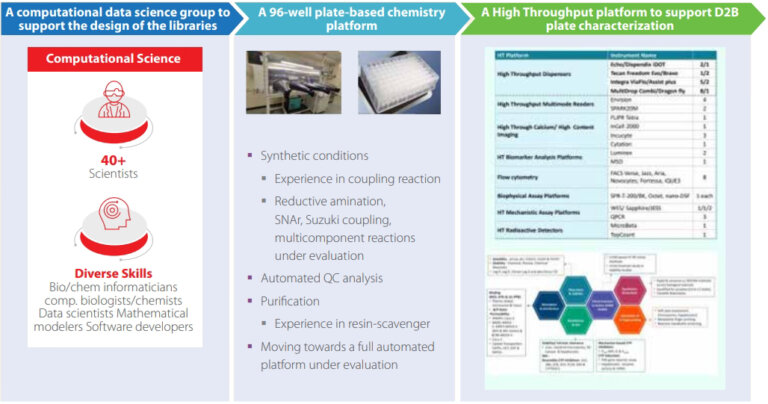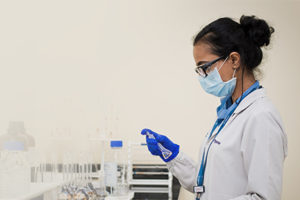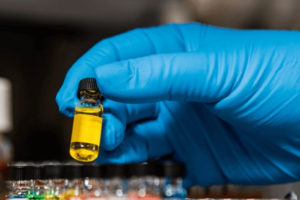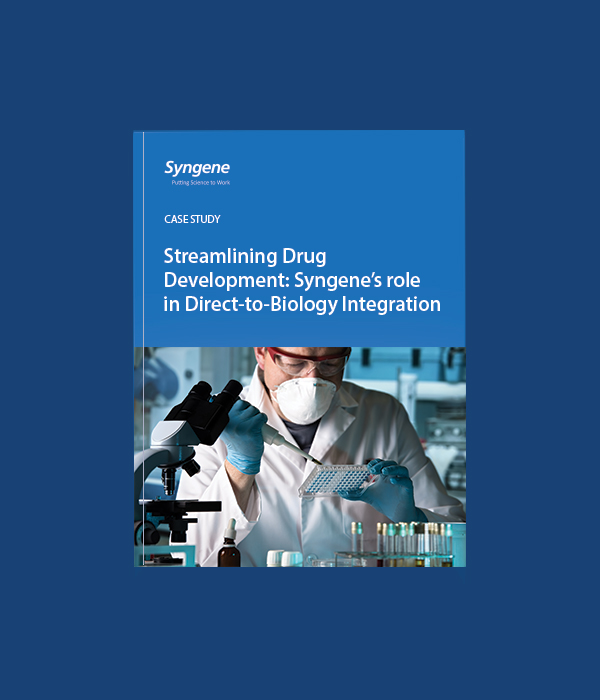Introduction
Drug discovery often involves lengthy timelines and high costs, delaying therapeutic breakthroughs. Despite significant advancements over the past few decades, the pharmaceutical industry remains burdened by extended development timelines, typically spanning 10 to 15 years, from initial target identification to final approval. The traditional drug discovery process costs an average of USD 2.8 Bn per new molecular entity. Syngene has adopted the Direct-to-Biology (D2B) platform to expedite this process. This innovative approach bypasses traditional bottlenecks in drug discovery. D2B streamlines the path from compound design to biological validation, enabling faster identification and optimization of promising drug candidates. This platform accelerates drug discovery by integrating automation, data-driven design, and highthroughput screening while reducing costs and operational inefficiencies.
Department : Discovery Chemistry, Discovery Biology and Synvent

Challenges Faced
Automation is widely employed in drug discovery to streamline processes and create efficiency, speed, and quality while enabling scalability. The drug discovery process involves multiple lab transitions (handoffs), where transferring data or experimental setups can introduce delays, errors, and inefficiencies. The D2B approach enables large amounts of project-relevant data to be collected, analyzed, and applied faster than conventional methods.
Effective automation minimizes manual interventions, optimizes process continuity, and facilitates seamless transitions between processes. By reducing multiple handoffs and automating the processes (synthesis and high-throughput screening), the D2B approach significantly shortens drug discovery timelines, enhancing productivity, cost-efficiency and scalability.
Capabilities of D2B
he Direct-to-Biology (D2B) platform integrates software-driven compound design using advanced molecular modeling techniques. The platform also includes automated parallel chemical synthesis at the micromole scale in 96-well plates. Additionally, high-throughput biological screening is employed to accelerate the optimization of compound properties and the identification of promising drug candidates (Figure 1).
Achieved outcome
The D2B platform has delivered measurable improvements across drug discovery:
Increased Productivity – Automation allows Syngene scientists to synthesize and optimize compounds at a much higher throughput.
Faster Optimization – High-throughput screening accelerates every stage from hit identification to lead optimization.
Cost Efficiency – Integrated automation reduces resource consumption and labor costs while ensuring precision and reproducibility.
Better Patient Outcomes – By expediting drug discovery, D2B helps identify effective drug candidates sooner, paving the way for faster development of safe and effective therapeutics
Conclusion
The D2B approach marked a paradigm shift in drug discovery, offering clients a streamlined, data-driven solution to accelerate innovation and addressing long-standing industry challenges related to time and cost. D2B empowers pharmaceutical companies to bring new therapies to market faster, ultimately enhancing patient care worldwide







